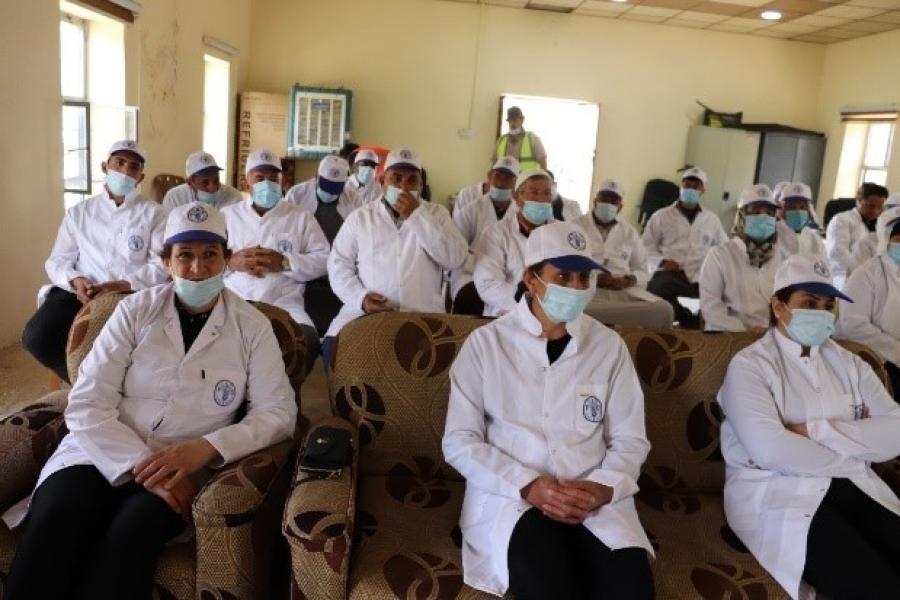Support to agricultural livelihoods of rural and peri-urban returnees and communities in Nineveh Governorate, Iraq
19 April 2021
On Thursday 15/4/2021 the EU/FAO agricultural livelihoods project for returnee farmers in Nineveh Governorate distributed twenty “handy scythes” (mechanical mowers for cutting fodder forage) to twenty women's associations in Al-Hamdaniya, Bashiqa, Tikif, Mosul, Al-Nimrud, Hamidat, Hammam Al-Alil, Wana, Al-Muhallabiah and Al-Qosh.

A ceremony was held in the presence of a large number of women beneficiaries as well as with extension workers from the Directorate of Agriculture. The use of the mechanical mowers should encourage livestock keepers to produce fodder crops locally in order to improve milk productivity up to 50% when feeding their dairy animals with newly introduced nutritious green fodder. It also alleviates the daily chores for women farmers who normally harvest manually.
On the day, the FAO team and extension workers trained the beneficiaries to use mechanical mowers to cut fodder. After an explanation on how to use it, the beneficiaries were invited to a practical demonstration at farmer Suhail Khudaydah Senju’s field from the village of Bahzani in a ryegrass field.
Agricultural extension staff answered questions and inquiries raised by the beneficiaries about the functioning of mechanical mowers, and then distributed to them to the women groups.
One beneficiary, Mrs Intisar Ephrem Boutros (1981) from Al-Hamdaniya / Qaraqosh said: “I am very happy with the training and support for planting green fodder crops received during several field visits. It has clearly given us a better economic return. The mowers will also help us to reduce time spent on cutting grass, so I will have more time for other activities such as milking and processing.” Intisar extended her sincere gratitude to everyone who helped especially FAO staff and the Nineveh Directorate of Agriculture Team.
Another beneficiary Mr. Suhail Khadidah Senju (1984) said: “My joy and the joy of my father were unspeakable today, because FAO chose our field in order to test and distribute the mechanical mowers and explain their mechanism of work, and a large number of beneficiaries were meeting to learn how to operate it.
Dr. Duraid Hekmat Tobya, Director of Nineveh Agriculture Directorate stated that the collaboration with FAO presents relief to a large number of formerly displaced farmers who were affected by terrorist operations. He was also pleased that the equipment would ease women’s time spent on cutting green forage.
FAO/Iraq representative, Dr. Salah Al-Hajj Hassan, thanked the European Union for financing the project and the Ministry of Agriculture for all efforts, facilities and partnerships that contributed to improving the conditions of returnee farmers and introducing appropriate and successful technologies. He emphasized the importance of introducing innovative technologies and new scientific information through FAO’s so-called “Farmer Field School” approach. He specifically thanked Dr. Chedly Kayouli, Senior Livestock Officer heading the team in Nineveh and support provided by René Verduijn, FAO Senior Resilience Team Leader.





